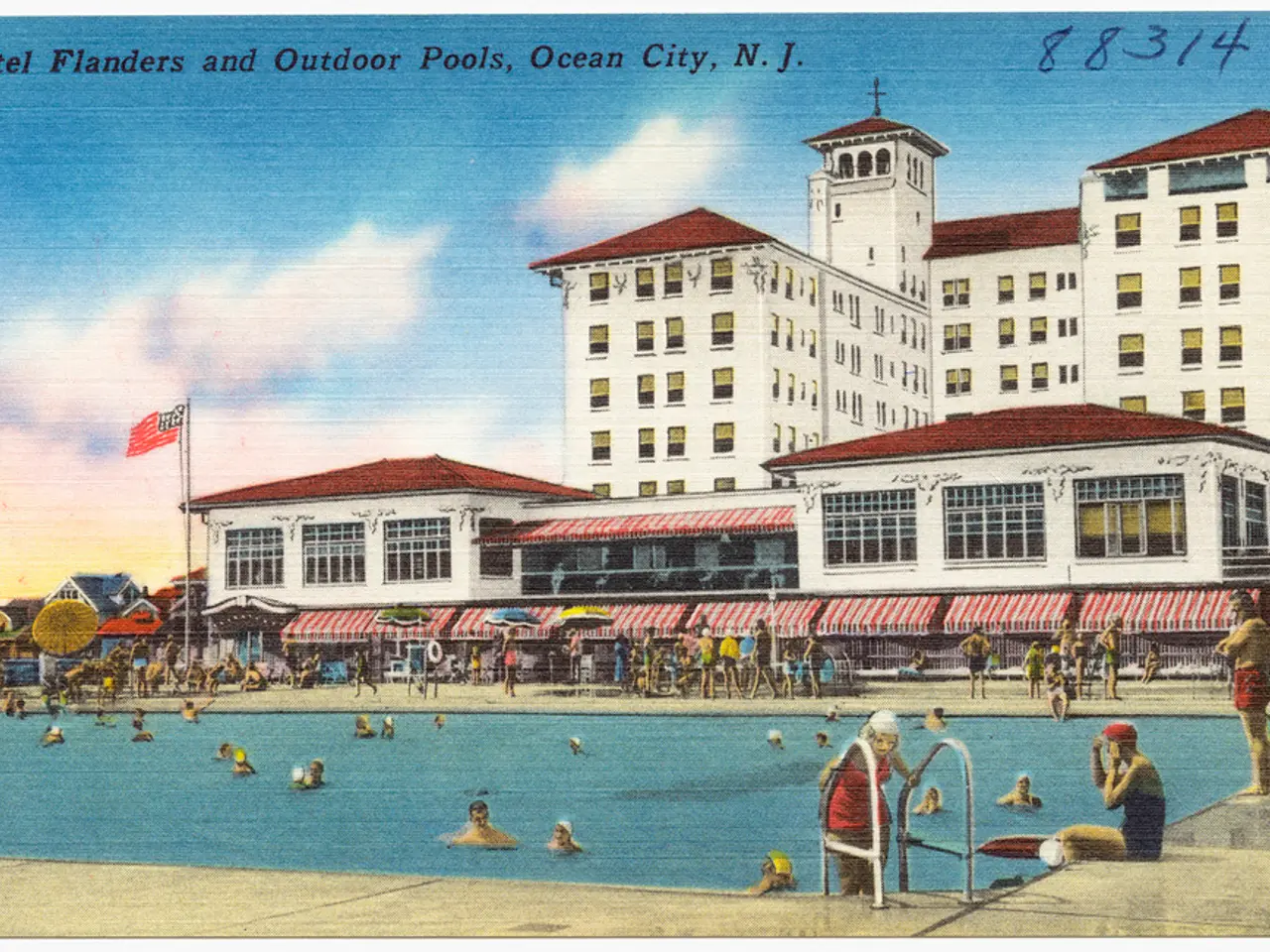A Landmark Moment: Armenian PM in Turkey
Prime Minister of Armenia in Turkey's Jurisdiction
Let's chat about a significant event shaking up the political landscape - Armenian Prime Minister Nikol Pashinyan jetting off to Turkey! This rare visit, welcomed with an invitation from Turkish President Recep Tayyip Erdogan, is more than just a casual meetup; it's a "working visit," as Erdogan's office described it. The big day is set to unfold in Istanbul later today.
Historically, these two neighboring nations, bitterly divided since the break in diplomatic relations back in 1993, have yet to fully restore their ties. However, they've managed to maintain diplomatic contacts since 2021, hoping to make some progress, but with limited success thus far.
This long-standing quarrel intensifies over the Nagorno-Karabakh region, where ethnic Armenians reside, causing conflict. Turkey sided with fellow supporter Azerbaijan, leading to a bitter 2020 victory for Azerbaijan, resulting in the displacement of nearly 120,000 ethnic Armenians from their homes.
The relationship between these countries further strains due to the century-old Armenian massacres in the Ottoman Empire. Scholars estimate that the death toll could reach as high as 1.5 million from 1915 to 1916. Turkey, the Ottoman Empire's successor state, acknowledges the deaths of 300,000 to 500,000 Armenians during World War I while lamenting the atrocities, but they firmly reject labeling it as a genocide.
Sources: ntv.de, dpa
Now, let's paint a broader picture of this unprecedented visit.
A Huge Leap in Armenian-Turkish Diplomacy
- Breaking Decades of Barriers - For the first time ever, an Armenian prime minister sets foot in Turkey at a high-level diplomatic capacity, marking a significant step forward in salvaging decades of hostility and fostering dialogue between these nations with no formal ties and a shut border since 1993[1][2][3].
- Bilateral Efforts Toward Normalization - This visit is the culmination of initiatives taken since 2021, when both countries assigned special envoys to pursue normalization talks, building on earlier attempts that fell through, such as the 2009 Zurich Protocols[1][3].
- Addressing Historical Grudges - The Armenian genocide recognition controversy lingers, with Armenia alleging Turkey of genocide in light of the 1915 massacres and deportations, while Turkey refuses the genocide label. Pashinyan's actions, like halting Armenia's international campaign demanding genocide recognition, indicate a willingness to ease tension and encourage communication[1][3].
- Geopolitical Context and Regional Stability - Turkey's close alliance with Azerbaijan, a nation that clashed with Armenia in the 2020 Nagorno-Karabakh war with Turkish backing, significantly affects their relationship. This visit is thoughtfully positioned to reduce Armenia's regional isolation and potentially open the door to a wider scope of peace and economic partnership, mayberry even reopening the Armenia-Turkey border that has been locked shut for over two decades[1][2][3][5].
Expected Outcomes
- Reopening of the Armenia-Turkey Border - Plans to reopen the long-sealed border would bring substantial economic and political benefits to Armenia, reducing its isolation and enabling direct trade and travel[1][3].
- Improved Diplomatic Relations and Regional Cooperation - Successful negotiations could result in formal diplomatic recognition, the establishment of embassies, and the embarking of broader regional cooperation that might also incorporate Azerbaijan and Russia, owing to their roles in the Nagorno-Karabakh conflict[1][2][3].
- Easing Nagorno-Karabakh Conflict Tensions - Although the core conflict remains complex, normalization between Turkey and Armenia may ease one of Armenia's tense fronts, convincing the ground for more constructive peacemaking efforts among all sides[1][3].
- Domestic and Regional Political Impact - The visit triggers mixed reactions in Armenia, sparking controversy over perceived concessions regarding genocide recognition and mixed regional reactions due to Azerbaijan's close ties with Turkey. The ultimate outcome depends on balancing domestic political dynamics and external alliances[3][5].
To put it plainly, Nikol Pashinyan's 2022 visit to Turkey is a landmark diplomatic move aiming to breach years of acrimony steeped in history and conflict. It promises the potential for groundbreaking advancements in Armenia-Turkey relations, regional peace, and economic growth; however, navigating this sensitive path depends on dealing with deep-seated historical and geopolitical issues[1][2][3][5].
- The diplomatic visit of Armenian Prime Minister Nikol Pashinyan to Turkey in 2022 could signal a shift in employment policies among European countries, as improved relations between these two historically divided nations could open up opportunities for increased trade and cooperation.
- As the political landscape in the Middle East evolves, this visit also holds implications for war-and-conflicts and general news, particularly regarding the resolution of the Nagorno-Karabakh conflict and the recognition of the Armenian genocide, issues that have long overshadowed any prospect of normalization.






